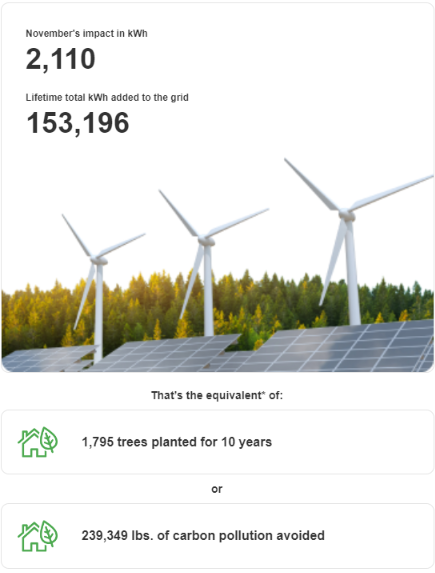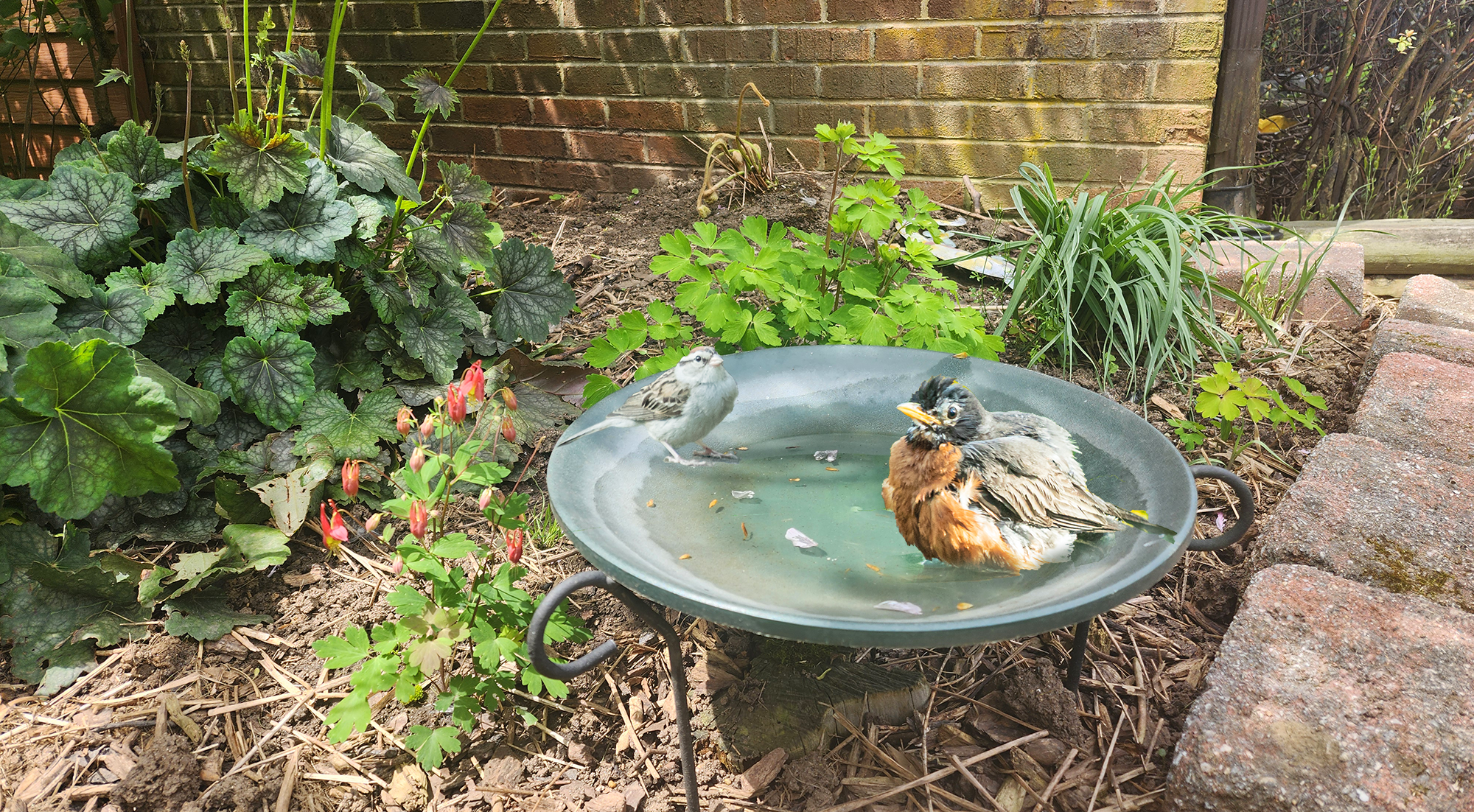Make these Eco-friendly Office tips your everyday habits to make a difference. These tips help reduce your use of fossil fuel, reduce the microplastics and chemicals you release into the environment, and help protect nature spaces that give wildlife habitat and clean our water and air. Your efforts multiply when your clients and coworkers become enspired by your eco-friendly office and replicate your environmentally-friendly efforts at their homes and businesses. Below, get the low-down on green changes make a big difference.
Goals: Microplastics Reduction, Fossil Fuel Reduction, and Old Forest Protection
Why Reduce Fossil Fuels and Protect Old Forests?
It’s becoming more and more widely known that fossil fuels sicken our air, water, and soil and contributes to Climate Change. They contribute to the acidification of our oceans making them unsuitable for life. Trees, especially old grown trees, and other plants remove carbon from the air so their protection is critical. It’s not just the CO2 that these impact, mining for fossil fuels and metals is devastating for wildlife, forests, air, water, and nearby communities. It needs reduction and enforced regulation.
Pollution and the impacts of Climate Change disproportionately occurs close to people of color and those with lower incomes – Environmental Issues are intrinsically Justice and Equity Issues.
Why Microplastics Are An Exponentially-growing Problem
Microplastics in our drinking water, streams, and oceans is an exponentially-growing problem affecting the health of humans and wildlife alike. Plastics contain hazardous hormone disruptors and also absorb toxins that are in the environment potentially causing more of it to be held in the body. (See data source.) The research into the problems of various microplastics is growing in an effort to deal with the constant new plastic concoctions being introduced into our homes every day.
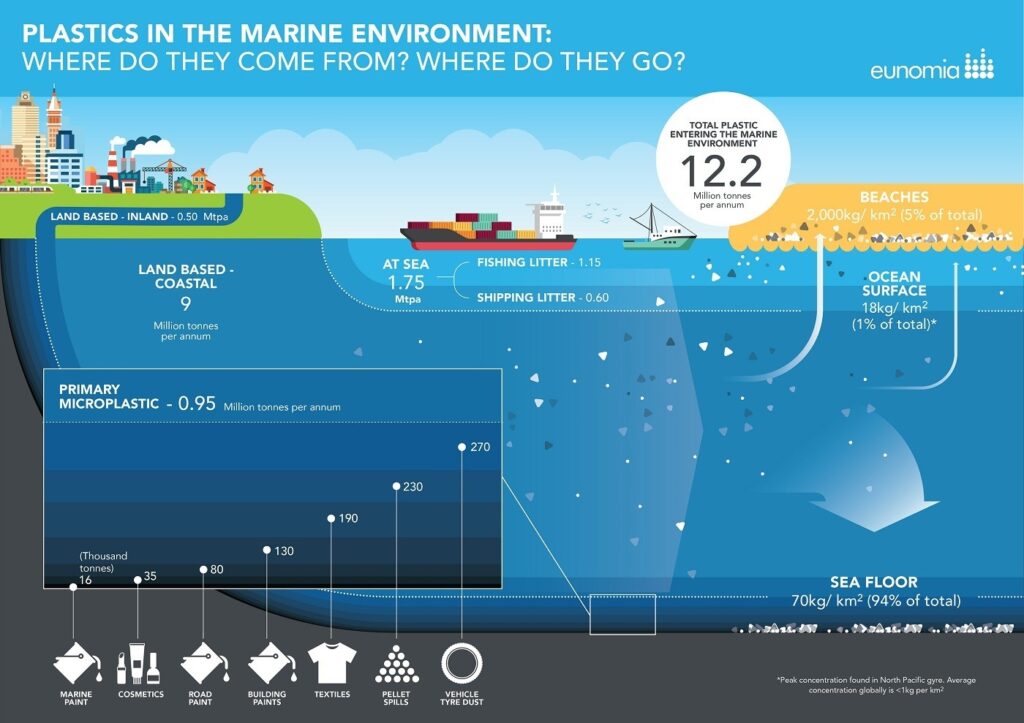
How to Reduce Microplastics and Fossil Fuel and Protect Old Growth Trees
Outdoor Spaces
- Outdoor Lights: Reduce and redirect lighting to protect wildlife.
Wildlife including wild birds are suffering from sleep problems and inability to migrate due too excessive outdoor lighting. Birds use the night sky to navigate and bright lights throw them off. Use lights that point downwards and reduce lighting as much as possible at night. - Outdoor Gardens and Patios: help save wildlife – add native plants and water fountains and avoid pesticides.
As of 2019, one in four species on earth were at risk of extinction and the problem is growing. Yards and patio gardens are critical for replenishing their lost food sources (pollen and insects are key) and homes. Unique native wildlife depends on native plants. Learn how to make a wildlife-friendly garden.

Utilities
- Electricity: Switch to green power through your utility. We love using Clean Choice*.
The whole process only required me a few minutes of filling out a form and submitting – they did everything else! - Turn Off Power: Find ways to turn off lights and power you’re not using.
This helps reduce your energy usage and thus our need to mine fossil fuels and metals. Check out these power-saving tips.
Kitchen and Cleaning
- Cleaning Towels, Swag, and Work Clothing: look for cloth made of plant fibers not plastics
Plastic fabric sheds microplastics when washed. Some more eco-friendly plant-based fabrics include Hemp, Bamboo, Modal, and Lyocell. Check ingredients for plastic chemicals that will break up into microplastics. These are found expecially frequently in antibacterial wipes, toilet wipes, and baby wipes. - Dishwasher Detergent Pods: switch to powder dishwasher detergent
The pod casing turns to microplastics – even those claiming to be “eco-friendly” and “biodegradable” – up to 70% of this PVA enters the environment. - Toilet Paper & Paper Towls: We’re fond of WhoGivesACrap
They’re not even packaged in plastic! - Containers, Dishes, Cooking Utensils, Eating Utensils, Cutting Boards: look for plant-based and glass
We use silicon straws, bamboo/silicon cooking utensils (here’s an affordable set like ours), bamboo cutting boards, ceramic dishes, metal silverware, and glass containers and steel containers (the tops are still plastic as non-plastic tops leak). When we go for disposable dishes at an event, we buy 100% compostable paper plates, bowls, and silverware to assure it has no plastics. - Cleaning Liquids: look for eco-friendly options
Green-sounding words don’t mean much (see so we look for the below official seals you’ll see on brands such as Seventh Generation.
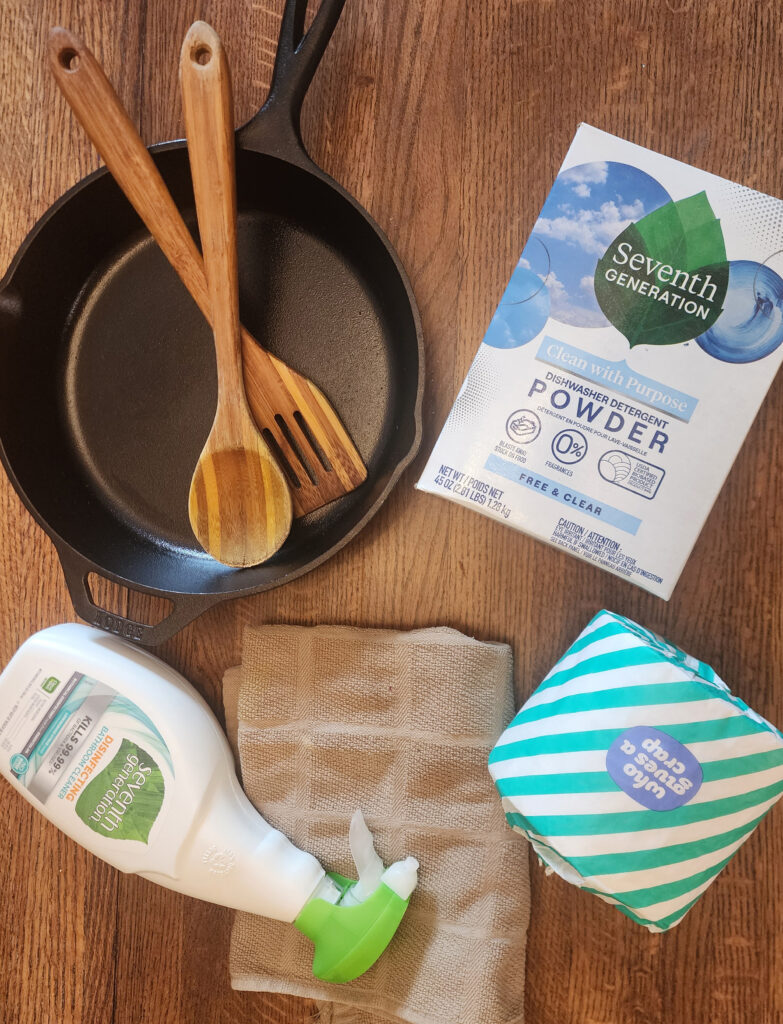
Is It Really Eco-friendly and Non-toxic?
With cleaning, food, and makeup products words aren’t enough!
Words without the seals aren’t regulated so they’re little more than decoration. This includes “natural,” “green,” “organic,” “eco-friendly,” “non-toxic,” and more.
To assure pollution was minimized in the making of products that you buy, and in its ingredients, look for the below seals. Find products with these seals at health food stores and online stores. You can also search EWG for verified human-friendly products.
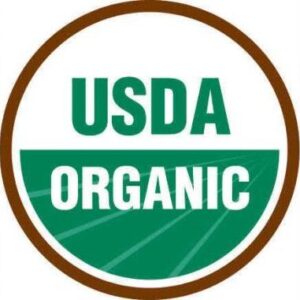
The USDA Organic Label is the only government-backed marketing claim for organic food sold in the United States. Only foods produced according to the USDA organic standards can display the organic seal.
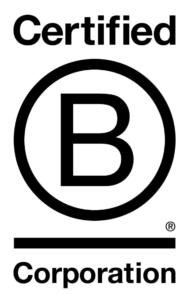
The B-Corp Seal is one of my favorites to check for. To achieve certification, a company must: Demonstrate high social and environmental performance. Make a legal commitment by to be accountable to all stakeholders. Allow information about their performance measured.
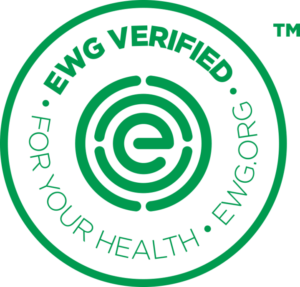
The EWG Verified Mark means the product is free from ingredients that many other countries have banned for their toxicity. Learn more.
Your Habits Make a Difference
Using a non-toxic or organic product for a short time is a great way to start feeling like you’re doing something to make the world better for people and wildlife.
However, if you make it into a habit for your company or home, it can make a big difference over many years! And, if you inspire others, the impact multiplies more.
Check out the difference we made just by changing our energy company to Clean Choice* for 9 years!
* We receive a $50 referral code if you use this link. If you’d rather not use the link, visit CleanChoice.com.
Thanks for taking a moment to discover ways to make our world a healthier place for today and for future generations!
